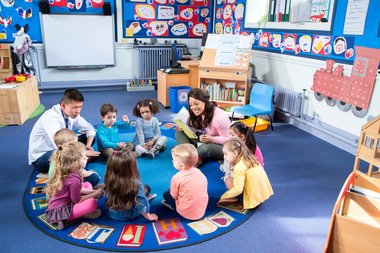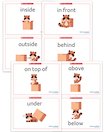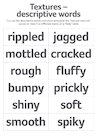Introducing new vocabulary in the early years
- Recommended
Add to My Folder
From self-expression and understanding to socialising and having fun, words are essential to us all. The 2021 Communication and Language and Literacy Areas of Learning both reflect the importance of words – there are specific references to vocabulary in the Speaking and Comprehension Early Learning Goals (ELGs).

The young child is constantly learning new words as they progress through the early years. By the age of five, children can recognise thousands of words, and the wider their expressed vocabulary, the quicker they can process language. This means that they can understand what they hear and read more easily – standing them in good stead for learning and life in general. Influential linguist Noam Chomsky believes that children are ‘hard wired’ to acquire the sounds, words and grammatical structures of language. This makes the early years practitioner’s job both easy and challenging; easy in that children absorb language automatically, challenging because language development will be much more extensive if we can provide a rich and supportive language environment.
Speaking ELG: Offer explanations for why things might happen, making use of recently introduced vocabulary from stories, non-fiction, rhymes and poems when appropriate (CL). Comprehension ELG: Use and understand recently introduced vocabulary during discussions about stories, non-fiction, rhymes and poems and during role-play (L).
Already a member? Sign in below.
Published 16 January 2023
Reviews
You need to be signed in to place a review.





